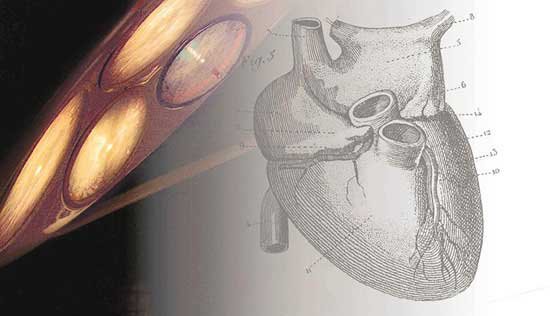Campus News - NOVEMBER 12th, 2007
Grant to fund organ donation campaign
SIMONE BATTISTE-ALLEYNE - Staff Write
Thomas Feeley, associate professor of communication, has been awarded a $427,000 grant to design a public relations campaign to promote organ donation on New York City college campuses.
Several schools including Hostos Community College, Fashion Institute of Technology, and City College of New York will participate in the campaign during the first year of the study, according to Feeley. The campuses will be used to promote blood, tissue and solid organ donations through a Public Relations course using positively framed messages with a narrative hook.
The incentive for the project is the wide disparity he has noticed between minority and non-minority donation, which has increased over the past five years, Feeley said.
According to Feeley, the Caucasian population currently becomes organ donors at a rate of 70 to 75 percent whereas other ethnic groups sign onto the registry at a rate of approximately 30 to 40 percent.
Feeley explained that overall, only a portion of people agrees to donate their organs when asked. Out of 100 people asked to donate their organs for a loved one, approximately 60 people will, Feeley said.
"All the (medical) advances made to allow for the transplantation of organs has created this wonderful procedure where we save lives, but we now have a shortage of organs," Feeley said.
The onset of diabetes is one of the primary reasons for the increased need for organ donation among minorities, according to Feeley. Diabetes is linked to kidney failure that leads to a need for kidney transplantation.
According to Feeley, it is important to get minorities involved in organ donation because they are more predisposed to chronic diseases than the Caucasian population.
"More minorities need to donate because of organ and tissue matching issues," he said.
New York City was selected to be the prime location for the study because of the high percentage of African-Americans, Asians and Hispanics that makes up most of the large population.
Feeley explained that minority groups are far below the national average for organ donation because of the high number of them who are uninsured, and the characteristically low economic status of the population.
For the campaign, Feeley is targeting college students for several reasons.
He believes that students are easy to reach with mass media messages since they are all centrally located on a campus and in classrooms.
Also, with the large number of first-generation people in college, they are more likely to become influential leaders in their community and advocates for the message, he said.
College students are also prime donation candidates because their organs are healthier. However, the tendency of college-aged people to engage in risky behavior such as binge drinking and extreme sports increases their chances of dying from trauma, according to Feeley. This makes them potential candidates to be organ donors because traumatic injury is the number one reason for organ donation.
"Most donors are young because they have healthier organs, (but) they are risk takers and die from traumatic events," he said.
Feeley conducted research on the effectiveness of persuasive, narrative and positively framed messages from 2003 to 2006 at UB and the University at Albany. This study was the foundation for the new campaign among minorities.
"We found that positively framed messages were most effective," Feeley said.
Feeley's principle co-investigator, Julie Rivera, brought a valuable skill set to the project, he said. Rivera has existing contacts in the New York City area, which proved useful when approaching schools for inclusion in the project. Rivera is an expert in the field of organ donation.
"She works at the New York Organ Donation Network. Their (donation) area is the entire New York metropolitan area," Feeley said.
Feeley hopes this campaign will benefit the cause of organ donation by increasing the number of minorities who participate in the registry.
"The solution in small part is in the hands of social scientists to change the attitudes and behaviors of those who are able to donate."

No comments:
Post a Comment